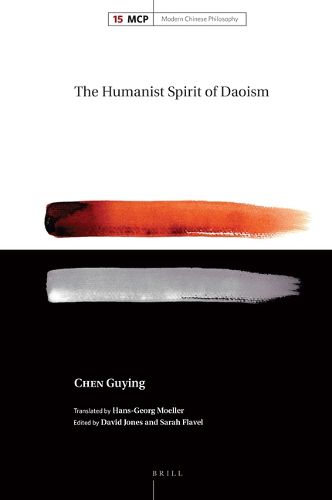Readings Newsletter
Become a Readings Member to make your shopping experience even easier.
Sign in or sign up for free!
You’re not far away from qualifying for FREE standard shipping within Australia
You’ve qualified for FREE standard shipping within Australia
The cart is loading…






In The Humanist Spirit of Daoism, Chen Guying presents a concise overview of his understanding of the meaning and significance of Daoist philosophy. Chen is a leading contemporary Chinese thinker and spokesperson for a new Daoist approach to existential and socio-political issues. He was born in mainland China in 1935, but after having resettled to Taiwan, he received his education there and was a student activist in the 1960s. He became famous in the Chinese-speaking world with his writings on Nietzsche, Laozi and Zhuangzi. At present he is a Professor at Peking University. This volume collects representative essays from the past 25 years which not only outline Chen’s interpretation of Daoism as a deeply humanist way of thinking and living, but also show how he employs this philosophy in a critique of totalitarianism and neo-imperialism.
$9.00 standard shipping within Australia
FREE standard shipping within Australia for orders over $100.00
Express & International shipping calculated at checkout
In The Humanist Spirit of Daoism, Chen Guying presents a concise overview of his understanding of the meaning and significance of Daoist philosophy. Chen is a leading contemporary Chinese thinker and spokesperson for a new Daoist approach to existential and socio-political issues. He was born in mainland China in 1935, but after having resettled to Taiwan, he received his education there and was a student activist in the 1960s. He became famous in the Chinese-speaking world with his writings on Nietzsche, Laozi and Zhuangzi. At present he is a Professor at Peking University. This volume collects representative essays from the past 25 years which not only outline Chen’s interpretation of Daoism as a deeply humanist way of thinking and living, but also show how he employs this philosophy in a critique of totalitarianism and neo-imperialism.